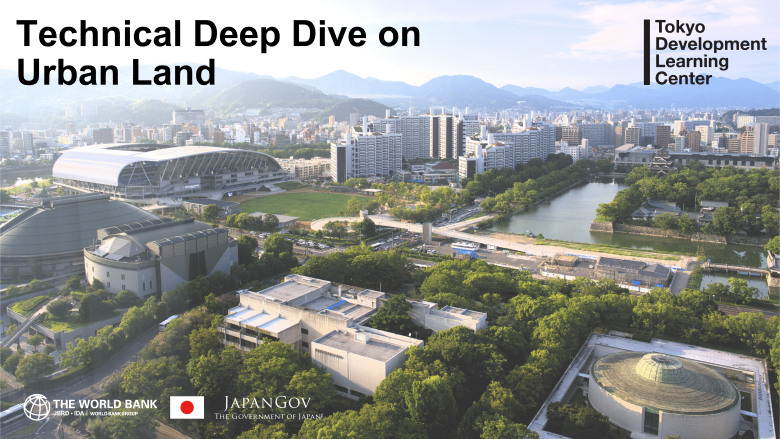
The World Bank Tokyo Development Learning Center (TDLC), in collaboration with the Land and Urban Communities of Practice, is organizing a Technical Deep Dive (TDD) on Urban Land from October 7 to 11, 2024, in Tokyo and Hiroshima, Japan. Approximately 35 representatives from 10 delegations, including Nigeria, Ethiopia, Madagascar, Indonesia, Türkiye, Bolivia, Jordan, Pakistan, Cambodia, and the Hindu-Kush sub region, who are engaged in urban development and land projects, along with the World Bank staff, will participate in this TDD.
Efficient urban land administration is vital for cities to manage land use, support urban development, and create livable cities. Systems like land and building registers, cadastral mapping, and property valuation are essential for securing property rights, fostering proper land markets, and generating city revenue. Modern geospatial systems also help cities integrate spatial planning, manage land use, and unlock opportunities for land value capture—essential for sustainable development, affordable housing, and disaster resilience.
While advanced economies are adopting next-generation 3D land systems, many developing countries still face challenges due to informality and outdated land records, which have led to uncontrolled urban expansion. Modernizing these systems enables cities to harness public assets for urban growth, capture value from new wealth and regeneration, and shift toward low-carbon cities with protected natural resources and biodiversity in urban areas.
Urban land administration is becoming increasingly important as cities face challenges such as rapid urbanization, climate change, shifting demographics, and financial constraints. Many are shifting from growth-focused models to more sustainable and green urbanization approaches. Modern land systems support land use planning, public land monetization, and climate strategies.
This TDD will highlight Japanese and global experiences and lessons in land administration and management, focusing on Japan's land registration systems, along with land use cases such as land readjustment projects public land utilization. A key focus will be on the lessons and experience of Hiroshima, where participants will learn through workshops and site visits about post-war land management and the city's reconstruction efforts under the Hiroshima Peace Memorial City Construction Law.